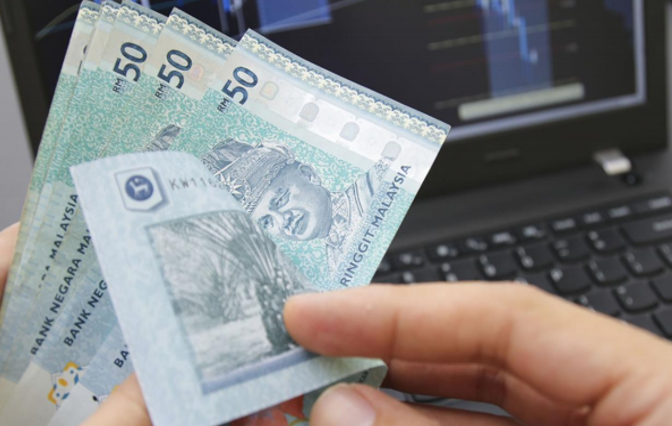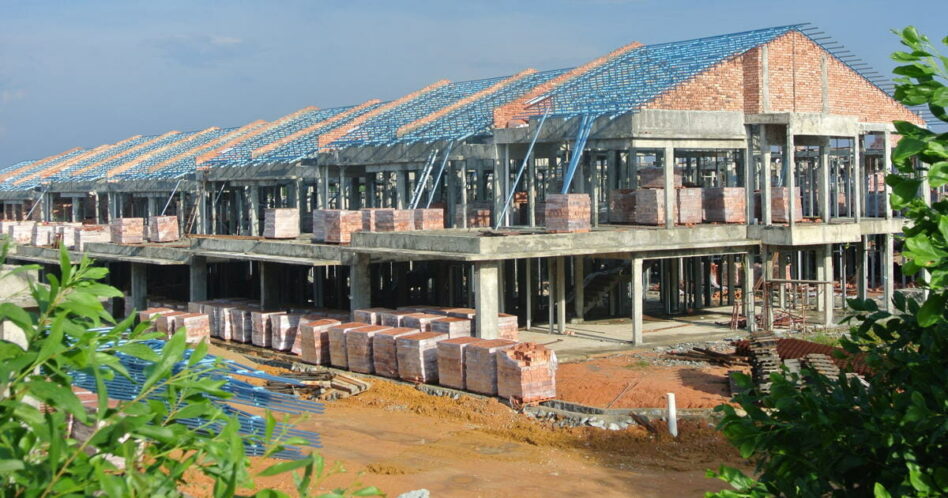RINGGIT is not only depreciating against the Singaporean dollar but also against other major currencies in Asia and around the world, leading to relative lower wages in Johor and Malaysia in both nominal and real terms in relation to expected inflations due to the Ukraine war and post-pandemic economic pressure.
It has in turn, had caused the Malaysian diaspora to not only seek employment in Singapore but many other countries around the world.
The continuous depreciation of ringgit has not brought about better wages for the local workforce and not improved their purchasing power in real and nominal terms due to sluggish transformation of Malaysian industry from labour-intensive industries that depend heavily on cheap and low-skilled foreign workforce to more technology-intensive and automated industry.
The stagnant economic modelling and a failing education system have also contributed to increasing capital outflows and driving local skilled workers overseas.
Malaysia had a net capital outflow of RM2.26 bil in the 4Q 2021 according to the Department of Statistics Malaysia. Between 2019 and 2021, except in 1Q 2021 and 3Q 2021 when Malaysia had net capital inflows of RM15.79 bil and RM22.68 bil respectively, Malaysia had a total of capital outflows in all other quarters amounting to RM123.09 bil and a net total capital outflow of RM84.61 bil in the past three financial years.
The persistent capital outflows showed both domestic and foreign investors’ diminishing confidence in the present regime in managing the country’s economy.
As temporary monetary measures, the Monetary Policy Committee (MPC) of Bank Negara Malaysia (BNM) decided to increase the Overnight Policy Rate (OPR) by 25 basis points to 2%. The ceiling and floor rates of the corridor of the OPR are correspondingly increased to 2.25% and 1.75%, respectively.
These monetary measures are only temporarily in nature to absorb the shock faced by the depreciation of ringgit and in an attempt to contain inflation, while maintain its exchange rate flexibility, in the midst of the US dollar appreciation after the US Federal Reserve announced its biggest interest rate increase by half a percentage point, to a range of 0.75% to 1% after in more than two decades as it toughens its fight against fast rising inflation.
Nonetheless, there are also many other detrimental long-term factors which have resulted in a weaker ringgit resulting in the Malaysian diaspora seeking jobs elsewhere.
Nevertheless, what Malaysia needs is a reform to her financial fundamentals, revamp her infrastructure, overhaul her outdated race-centric socioeconomic and education policies, and combat corruption and illicit capital outflows.
Apart from the pandemic, a dysfunctional pseudo-democracy, declining transparency in our financial institutions, stagnant development of infrastructures and more importantly, the outdated race-centric socioeconomic and education policies have made Malaysia less attractive for long-term investment compared to neighbouring countries.
People need a new deal
A weakened ringgit has affected our populace’ purchasing power, quality of life, and more young talents are leaving the country for greener pastures.
In the past 10 years, Malaysian ringgit has depreciated against the major regional currencies, not only Singaporean dollar by -22% but also at -21% against Thai baht; Philippine peso (-13%); Vietnam dong (-22%); Cambodia riel (-29%); China renminbi (-24%); Taiwanese new dollar (-28%); Hong Kong dollar (-29%); South Korean won (-21%); US dollar (-29%); euro (-13%); pound sterling (-7.9%); and Swiss franc (-25%).
For Malaysia to improve investors’ confidence, many of her institutional weaknesses have to be corrected. Most importantly, Malaysia has to address corruption and illicit capital outflows as a dire national crisis after COVID-19.
In the long run, corruption and illicit capital outflows would bring about more pressing socioeconomic upheavals!
According to the report by Global Financial Integrity, the developing countries with the largest value gaps identified in trade with 36 advanced economies in 2018 are China (US$305 bil), Poland (US$62.3 bil), India (US$38.9 bil), Russia (US$32.6 bil) and Malaysia (US$30.7 bil).
Malaysia lost between US$22.9 bil (RM94.22 bil) and US$33.7 bil (RM138.66 bil) in illicit capital outflows from 2006 until 2015. Malaysia lost up to about US$431 bil (RM1.8 tril) in illegal flow of money between 2005 and 2014.
In conclusion, Malaysia possibly has the highest illicit capital outflows per capita in the world, leading to massive amounts of government revenue losses due to tax evasion that could have been used to promote our education system and Technical and Vocational Education and Training (TVET) to upgrade our workforce’s skill, increase workers’ productivity and earning capacity.
Malaysia’s civil society should be more proactive in pursuing illicit capital outflow issue that is closely related to corruption.
So far, only one prominent NGO (non-governmental organisation) that is Penang Consumers’ Association had called for setting up a royal commission of inquiry (RCI) to investigate allegations made in the Pandora Papers, Panama Papers and Paradise Papers against many prominent Malaysian leaders and their family members for being involved in illicit capital outflows with unknown sources of their fortunes.
The purpose for the RCI is not to seek revenge but to reveal the truth with an eventual amnesty in mind, and only then Malaysia would be ready to thrive again as a nation.
Malaysians deserve a new lease for better life starting from this crucial determination to reveal the truth, to know the truth, to reconcile with the truth in regards to the severity of systemic corruption and to move on with a determined will to reform our institutions. – May 14, 2022










